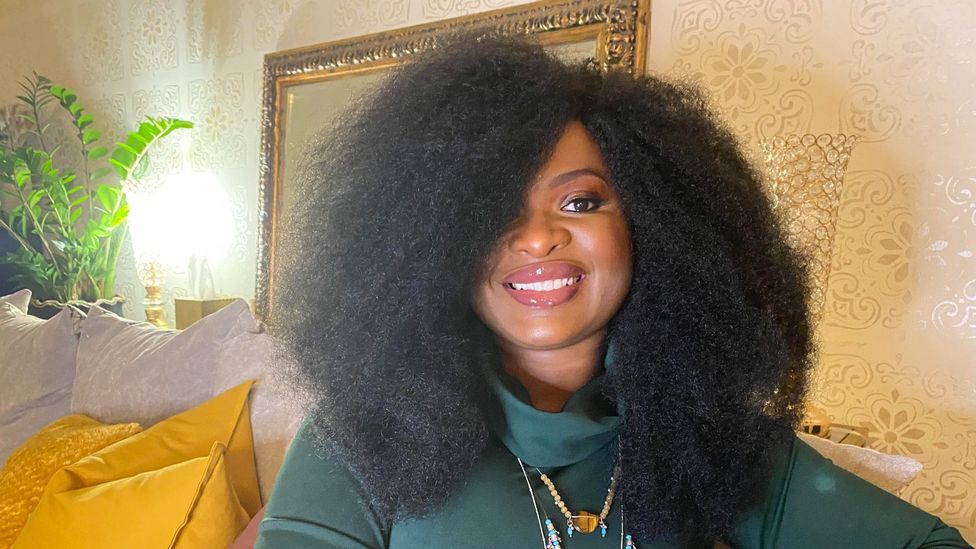As a kid, I loved going to hospital.
No, I wasn’t a patient. My mother, a nurse who was working up to 60 hours a week at two hospitals in Los Angeles, would occasionally smuggle me into the ward where she was working a graveyard shift. She’d find me an empty room, where I’d stay up late watching TV and playing with the adjustable bed; in the morning I’d breakfast on single-serving cereal boxes my mum would bring from the cafeteria. These things were a treat.
It took me years to realise that sleepovers in a hospital room weren’t normal, but the make-do habit of a single immigrant mother who lacked consistent childcare and was striving for financial independence.
Many children of Korean immigrants to the US have similar stories of parents putting in long hours and finding resourceful ways of achieving their goals. These practices are sometimes venerated as part of an intense work ethic and commitment to education demonstrated by successful immigrant groups, including Koreans in the US and Nigerians in the UK.
Yet while children of these first-generation immigrants no doubt benefited from their parents’ intense effort, some are questioning the ingrained ideas about work that they grew up with, as they face different career issues and forge different stories of success.
Hard work and the first generation
Immigrant circumstances are incredibly varied, depending on factors including documented migration status, financial resources and political climate. A combination of factors, including who is able to migrate, means that for certain immigrant groups, the statistics related to achievement are impressive overall.
Nigerians are among the most educated ethnic groups in the UK, for example. Nigerian immigrants are over twice as likely as the British national average to hold at least a bachelor’s degree (and over eight times as likely as people in Nigeria). In the US, meanwhile, Koreans have seen dramatic increases in income and status over the course of a generation. More than one-third of Korean immigrants to the US have created their own businesses.
Despite lots of talk of cultural values, there’s no inherent reason for the success of certain immigrant groups. In the modern day, one key factor can be hyper-selective immigration policies that focus on highly educated and skilled people, says Onoso Imoagene, a sociologist at New York University, Abu Dhabi. In other words, countries with restrictive immigration programmes, like Canada and the UK, give preferential treatment to certain groups of high achievers. For Nigerians, for example, a common immigration pathway is to obtain a student visa. Even during periods of looser immigration programmes, it has been mainly people of economic means who can afford to navigate complicated application requirements and move countries. It’s no surprise then that those groups, and their children, often do well.
But that success is hard-won, given the many obstacles faced by the foreign-born. These include structural barriers including accent-based discrimination, stereotyping and the difficulty of transferring credentials between countries. Hallmarks of success – such as homeownership, financial support to relatives in the country of origin, or the increased comfort and choices of the next generation – are often the product of intense toil; reliance on ethnic and religious networks of support, if they exist; and sacrifice.

Tols Abeni's parents worked hard - and taught her to strive for excellence (Credit: Tols Abeni)
Tols Abeni, a 34-year-old photographer and producer in London, saw this insistence on hard work in her parents, who came to the UK from Nigeria as young adults, and worked in accounting and the civil service. In her view this work ethic was partly “a cultural principle of being a black person in the UK”, where “you have to work twice as hard as your white counterparts, in order to even be given a sliver of the recognition that they are given in the workplace”.
But in her parents’ case, this principle was combined with their own complex ideas about immigrants proving their worth and constantly upholding excellence. “You’re told from a very young age you can’t afford to make mistakes, or to be involved in the same kind of silly or mischievous things as maybe your Caucasian counterparts, because it will be counted against you,” Abeni reflects.
For 35-year-old restaurateur Sun Woo Choi, education and entrepreneurship were intertwined with his family life from the start. His father came from South Korea to the US state of Hawaii with very little money; he was still living in student accommodation when his wife joined him. As they raised Choi and his four younger siblings, they started a succession of small businesses: a smoothie and BBQ stand, a gift shop, a tutoring centre, a sushi catering business, and now a restaurant that recently opened its second branch. It felt natural for Choi to work 40 hours a week while attending high school, to help pay for his private school and contribute to his family’s businesses.
Upward mobility in the second generation
Immigrants’ beliefs about success inevitably shape their children’s attitudes to work, yet these are complicated by external influences and changing labour markets.
Imoagene sees a lot of continuity between the first and subsequent generations of middle-class Nigerian immigrants in the way they prize education. Part of this comes down to immersion in social networks of professional, highly educated people; those expectations become normalised from a very young age.
But children of immigrants can feel highly pressured by parents’ expectations of achievement. Abeni finds it especially toxic when immigrant parents show off and compete with each other over whose child is the most successful. She created the We Are: Black British Nigerian project, which collects the stories of British Nigerians, partly to showcase the ethnic and other diversity within this population. But certain threads kept cropping up, like the centrality of education and tendency to value a narrow range of prestigious occupations: doctor, lawyer, engineer.
You hear this often in high-achieving immigrant communities. Elite sprinter Abi Oyepitan had to join the British Olympic team for her traditional Nigerian parents to stop being disappointed that she wasn’t a lawyer. Among Korean Americans, even jobs in finance are sometimes not seen as prestigious because they don’t require advanced degrees.

Sprinter Abi Oyepitan didn't become a lawyer - but represented the UK at two Olympic Games (Credit: Getty)
Family expectations can become especially complicated for those who carry on the family business. Choi continued to help his parents with their companies even after he finished his education, worked as an IT consultant and moved to Utah in the US. His father expected him to work in the corporate world for a few years before joining the family restaurant business, and that’s what he did. As Yummy’s Korean BBQ and Sushi just opened a second location, Choi has been busier than ever – temporarily working up to 100-hour weeks. “I feel like work is what makes a person. A restaurant is really hard work,” he says. Even so, he and his wife are more lenient with their three children’s education than they themselves were raised to be – a sign of a slightly shifting attitude toward achievement.
These kinds of shifts may be happening in part because more people realise how intense work ethics linked to traditional immigrant upbringings can have severe health consequences. “When I was conducting research in New York, church ministers would lament because they would have to conduct a funeral, because Korean American men, all of a sudden, would die in their 40s because they never took time off,” says Kyeyoung Park, a sociocultural anthropologist at the University of California, Los Angeles.
Many in the second generation are also more political, and uncomfortable with the way certain ethnic groups are pitted against each other with troubling labels like ‘model minority’. But changes are also occurring because the sacrifices of the first generation made different choices possible for the second.
New choices and a legacy work ethic
One person who has steered a slightly different course to success is Kike Moronkeji. Initially, she worked in aerospace before obtaining her PhD in biomechanical engineering, but with three small children at home in Kent, England, she needed to find a career that involved less travel. Seven years ago she had the idea for Gidi Box Office, a streaming platform for Nollywood films. The site launched in March, and 43-year-old Moronkeji has been scrambling to get the business off the ground. “I’m having to claw those hours wherever I can find them,” she says, including at night after her kids go to bed.
Her intense schedule these days is partly a legacy from her parents, “and not wanting to let their struggles go to waste”. She also worries about passing her work ethic on to her children, who take so much for granted: “How do I communicate effectively to them that even if you have some form of privilege or abundance, you have to be responsible about it?”

Kike Moronkeji's work ethic is a legacy from her parents - but she's channelling it in a new professional direction (Credit: Kike Moronkeji)
Abeni focuses on working smart, such as by building relationships, rather than working as hard as her parents did. She also believes that her generation saw that “we’re still not getting the opportunities we deserve by working twice as hard”. Imoagene’s research suggests that this kind of frustration is more significant than burnout among second-generation Nigerian immigrants; careers may succeed only to a certain point, and then stall out before “being the real boss boss”. Similarly, many highly-qualified Korean women report seeing their careers plateau due to perceptions that they’re not leadership material.
In addition to different professional challenges, they’re facing a different economy, with more precarious work and a desire for more purpose. Sometimes, says Park, immigrant parents don’t understand these second-generation challenges, beyond the language and credential obstacles that they themselves faced. For instance, small business owners “don’t understand what it is like to work at a mainstream major corporation”. And older people who were used to logging set hours may not understand an always-on work culture. Moronkeji says that she’s currently working longer hours than her parents did, and that this work is more mental than physical.
However, as the generations carve out new ideas of success, both on their own and in interaction with each other, Park sees some areas of convergence. Recently, she’s marvelled at seeing older Korean immigrants take the day off work to go hiking. Moronkeji notes that her parents have been very supportive of her moving from engineering to entrepreneurship, because they know that she has her PhD to fall back on.
Abeni, who worked for several years after university without taking a single day off, recognises the benefits but also the harms of an immigrant work-at-all-costs mindset. She’s been striving to reshape hers, but it’s a journey. “There’s always still that kind of element of ‘you need to overdo things’. And I don’t think it’s something that you can just delete from your psyche just like that.”
Indeed, it’s taken me a long time to get comfortable with inactivity. I recently asked my now-retired mother, on the Korean messaging app Kakao, if she thought I was lazy for not working the extreme hours she did. “No, your circumstances is different than mine!!”, she messaged, in her typical punctuation-happy way. “Also there is a big difference between first and 2nd generations of immigrants!”
"work" - Google News
July 08, 2021 at 03:19AM
https://ift.tt/3AE1y9v
How an 'inherited' work ethic shapes some workers - BBC News
"work" - Google News
https://ift.tt/3bUEaYA
Bagikan Berita Ini














0 Response to "How an 'inherited' work ethic shapes some workers - BBC News"
Post a Comment